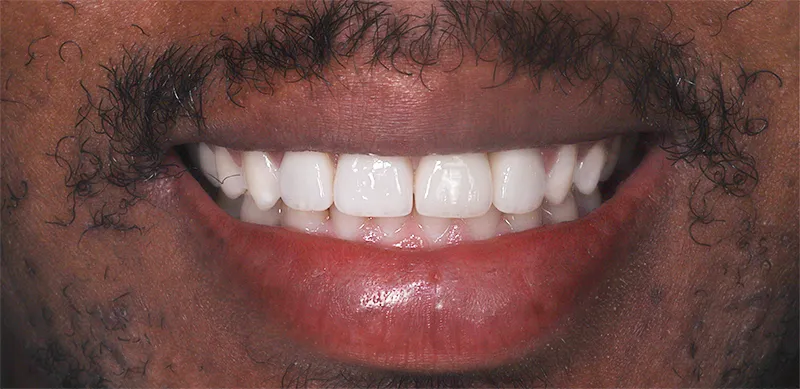Dental Implants
Restoring your smile

Dental Implants
Restoring your smile
What are dental implants?
Dental implants are an excellent way to replace one or more missing teeth. They are as aesthetically pleasing, functional, and long lasting as a natural tooth. As with any medical procedure, it is important to understand the procedures, benefits, risks and costs involved before proceeding with treatment.
A tooth implant can be thought of as an artificial root that is placed in the jaw. Together with the crown on top, it is considered the ‘Gold Standard’ for replacing teeth today. The implant comprises of a medical-grade titanium body that allows for a binding process called Osseo integration with the bone.
What are the benefits?
- Dental implants allow you to enjoy the foods you love- If you have had missing teeth or poorly fitting dentures for years, you probably avoid certain foods that you enjoy. Tooth implants can allow you to chew comfortably with confidence whether you are out or at home.
- Dental implants help preserve or restore your smile- Losing teeth can cause the face to look sunken and aged. The replacement of teeth with implants can help support facial shape and make one look more youthful and healthy.
- Dental implants can help restore speech and pronunciation- Many people are unaware that teeth play a major role in pronunciation. If missing teeth are preventing you from conversing normally, dental implants are a solution to help you restore your speech.
- Protecting natural teeth with dental implants- When one or more teeth are lost, the load during chewing is spread onto the remaining natural teeth. This can result in excessive loading of the natural teeth. Dental implants can help redistribute the load favourably and help preserve all remaining natural teeth.
- Dental implants are built to last- With our expert advice, planning and restoration, titanium implants are very strong and provide a very aesthetic result that will last for years.
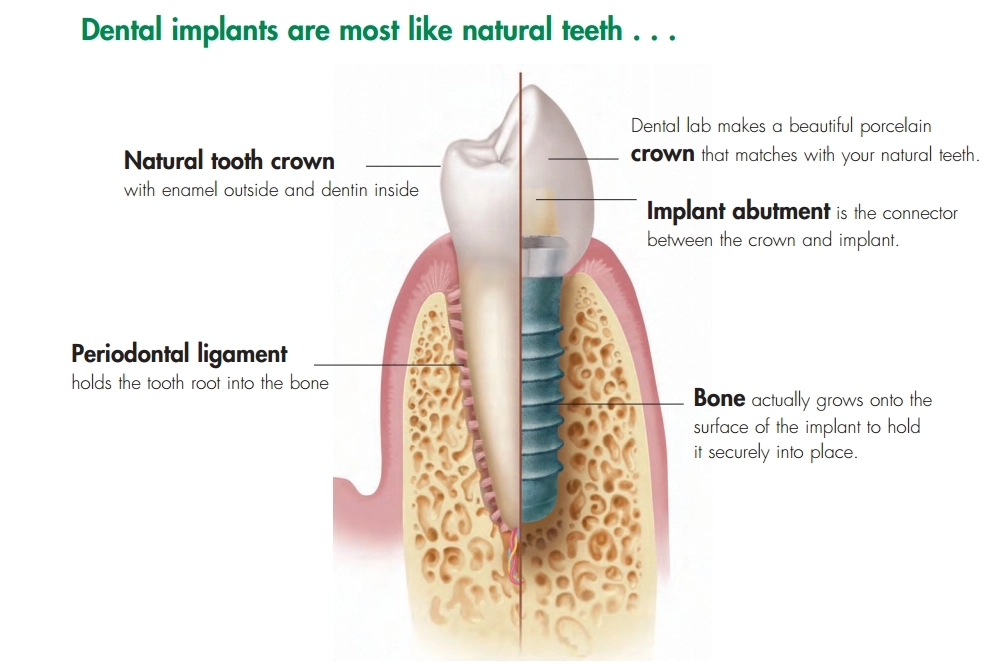
Mr. Adams’ implant journey
After years of wearing a temporary acrylic denture, Mr. Adams chose a dental implant for a secure, long-term solution. Now, he can confidently bite and smile without worrying about movement or discomfort.
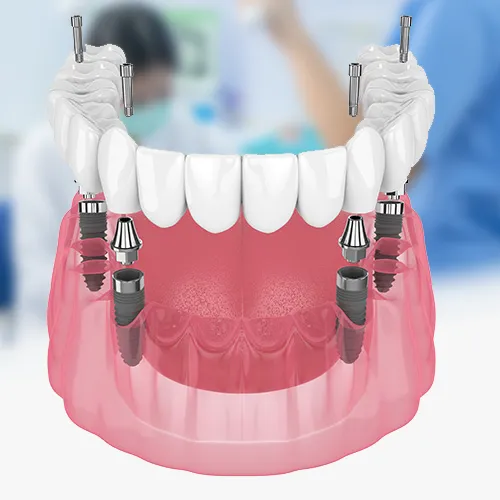
All-on-4 dental implants
All-on-4 dental implants are an innovative solution for replacing a full arch of teeth with just four implants, restoring both function and appearance in a single procedure. This advanced technique delivers immediate results and long-term stability, improving chewing ability, speech, and self-confidence.
At Simply Teeth, our skilled team and state-of-the-art facilities ensure a comfortable, personalised experience with outstanding outcomes.
Learn how All-on-4 dental implants can restore your full smile.
Treatment and procedure times
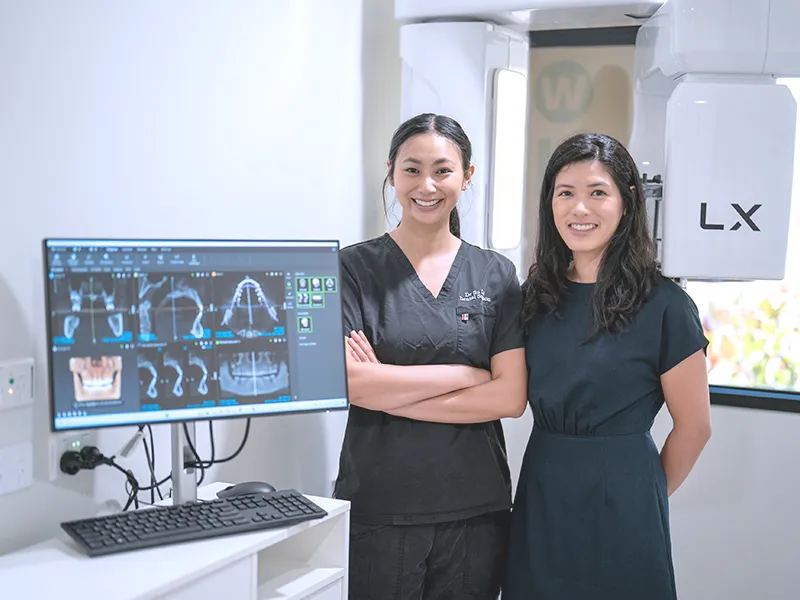
The whole procedure involves approximately 3-4 visits. This may vary depending on the complexity of the case. For all these procedures, you are often fit for work the next day.
Stage 1: Treatment Planning
Our experts at Simply Teeth carry out a comprehensive examination as well as thorough treatment planning process. Together with an X-ray of the area, the ideal shape, length, size and position of implant placement are determined.
Stage 2: Implant Placement
The implant is placed inside bone and left to heal for approximately 2-3 months. During this time, a temporary tooth can be provided for function and aesthetics.
Stage 3: Crown, Bridge or Denture Installation
When the implant has adequately Osseo-integrated with bone, the porcelain tooth or bridge can be installed. This should result in teeth replacement that looks aesthetic and functions naturally.
Variations
Denture Retained Implant
Loose or ill fitting dentures can be socially embarrassing as they make speaking and eating, difficult and unnatural. Implants can help stabilise your dentures without the need for messy denture pastes. The procedure for implant placement is exactly the same. Instead of a crown or bridge, however, the denture is fitted onto the dental implants.



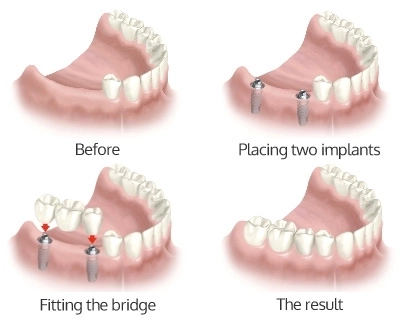
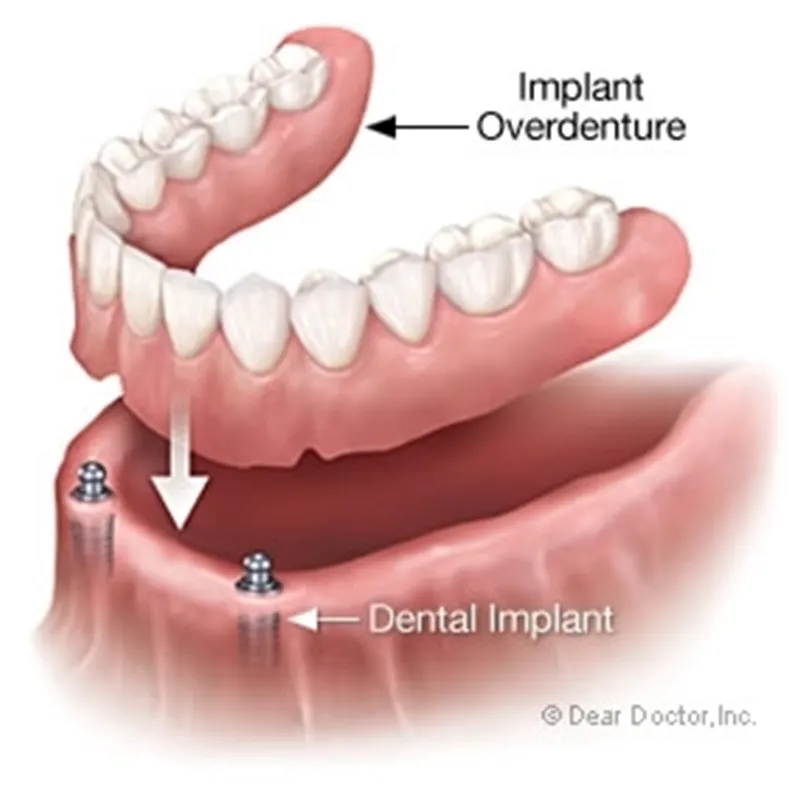
What are some common risks involved during the placement of dental implants?
No medical procedure comes without risks. Some of the most common risks of dental implant placement include: Non Osseo-Integration.
This occurs when the implant fails to integrate with bone. Although dental implants have a success rate of up to 98%, failures can occur due to infection, micro movement and systemic conditions.
Our dentists at Simply Teeth ensure optimal implant placement conditions before the procedure is carried out.
Peri-implantitis is a disease that commonly affects dental implants. This refers to an inflammatory process that affects the soft and hard tissue surrounding the dental implant.
Peri-implantitis occurs more often when cleanliness around the implant is not maintained. At Simply Teeth, our dentists have been trained to clean and maintain implant sites to minimise the risk of peri-implantitis.
What if I am a nervous about the procedure?

Are there alternatives to replacing a missing tooth?
Yes other options include leaving the space as it is, having a bridge or denture. Call us now to find out how our team of dedicated dentists at Simply Teeth aim to make dental implant treatment safe, predictable and successful.

